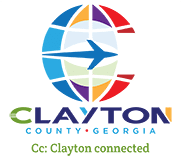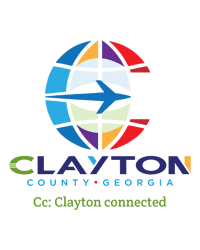Contact
Chief Judge
Salvia S. Fox
9163 Tara Boulevard
Jonesboro, GA 30236
Phone: (770) 477-3270
Fax: (770) 477-3255
Intake: (770) 473-5977
W/E: (770) 473-597


Organization
Judiciary
The Juvenile Court is served by three full-time judges, with the Honorable Salvia S. Fox serving as chief judge since 2023. Judge Salvia Smith Fox was appointed to the Juvenile Court bench in 2021 and was appointed as presiding judge in July 2023. Judge Leslie Miller Terry was appointed to the Juvenile Court bench in 2022, and Judge Christopher Walker was appointed in 2023. Our judges are appointed by the Clayton County Superior Court to four-year terms.
The judges in Juvenile Court hear all cases that come under its jurisdiction that are formally processed. This includes the arraignment, adjudication, and disposition hearings in matters of delinquency, in cases involving children in need of services (CHINS), and dependency matters. Detention hearings, to determine whether or not a child must remain in a detention facility or in protective custody pending further court action, are another responsibility of the judges. Our judges are responsible for issuing all orders of the court as well as bench warrants, pick-up orders, and ex parte orders involving children under its jurisdiction. Additionally, Juvenile Court judges are called upon to hear a variety of special proceedings cases. These cases involve special circumstances such as permission to marry, extensions of custody, waiver of parental notification of abortion, and termination of parental rights.
Court Administration
Colin Slay serves as the Court Administrator. Mr. Slay has served with the Juvenile Court in various capacities since 1999. Court Administration also includes the Juvenile Court’s Office Administrator, Information Technology Coordinator, and Grants and Staff Development Coordinator.
Intake Operations
The Intake Operations Division is responsible for receiving referrals (complaints) from law enforcement officers, parents, school officials, and private citizens on children alleged to be delinquent, in need of services (CHINS), dependent (abused and/or neglected), or who have been cited for traffic violations. Intake is fully staffed during normal business hours. Outside of normal business hours, juvenile court officers serve in an on-call intake capacity.
Intake Operations can be reached by calling 770.473.5977 during normal business hours. If you have an emergency, call 911.
You can also email general questions regarding intake procedures to: juvenile.intake@claytoncountyga.gov
Please note that we cannot provide legal advice, and certain circumstances may require you to meet with an intake officer in person.
Children in Need of Services (CHINS) Cases
Complaints alleging that a child is in need of services are handled differently from delinquency cases by Intake Operations. Beginning in January 2014, Georgia law separated status offenses (those offenses that are only illegal based on the child’s age; e.g., truancy, runaway, ungovernable) from the delinquency code, creating a separate governance structure for CHINS. Article 5 of the Juvenile Code of Georgia acknowledges that certain behaviors or conditions that occur within a family or school environment indicate that a child is experiencing serious difficulties and inasmuch, it requires a multi-disciplinary approach to dealing with those issues.
If a family or school is unable to effectively address inappropriate behaviors of a child on their own, the intake officer will refer the matter to the Clayton County Collaborative Child Study Team (Quad-C ST). The Quad-C ST is a panel consisting of representatives of various child- and family-serving organizations in Clayton County, and its purpose is to review the presenting issues and assist families in developing a plan to address them. Only after the Quad-C ST case plan has been proven ineffective may a CHINS case be processed in a formal way through the Juvenile Court.
Delinquency Cases
Generally, offenses that would be considered a misdemeanor or felony if committed by an adult are referred to as delinquent offenses in juvenile court. Complaints alleging delinquency are most often filed by law enforcement officers, but we occasionally receive delinquency complaints from school officials, parents and private citizens. Upon receipt, an intake officer will review the complaint to ensure that we have jurisdiction, that there is probable cause to believe the alleged offense occurred, and then determines the most prudent course of action.
The Juvenile Code of Georgia gives intake officers the authority to detain youth who pose a situational risk to harm others or who are at risk of fleeing the Juvenile Court’s jurisdiction. That determination is made using an objective risk classification tool, the Detention Assessment Instrument. If a child is detained by intake, he or she will appear before a judge within 48 hours of detention (weekends and holidays excluded) for an informal detention hearing. The parents or custodians of the child will also be asked to attend a Finding Alternatives for Safety and Treatment (FAST) Panel meeting prior to the court hearing. The FAST Panel’s purpose is to identify possible alternatives to detention that will allow the child to be safely released on a Community Detention Order pending further court action; this would akin to bail in the adult criminal justice system.
Georgia law also allows the intake officer to divert cases to informal processes such as mediation, counseling, and informal adjustments if the intake officer determines that counsel and advice without adjudication would be in the best interests of the public and child. These decisions are assisted by the use of a Diversion Screening Instrument. If the instrument suggests that diversion is the appropriate course of action, the case will be forwarded to the Restorative Justice Division for further review and processing.
Dependency Cases
Formerly known as “deprivation” cases, Article 3 of the Juvenile Code of Georgia governs dependency proceedings, and its purpose is to assist and protect children whose physical or mental health and welfare is substantially at risk from harm from abuse, neglect, or exploitation. Complaints involving dependency generally come from three sources: the Division of Family and Children Services (DFCS), law enforcement, and private citizens.
If you suspect that a child is being abused or neglected, please contact your local police department or DFCS at 1-855-GA CHILD (1-855-422-4453).
In most dependency cases, the intake officer facilitates the processing of complaints from DFCS and plays an approval and coordinating role in efforts made by the agencies involved in the placement of a child into shelter care or with an appropriate relative. When a child is taken into protective custody, the intake officer will schedule a hearing before a judge within 72 hours of the removal from the child’s parents or legal custodians.
When dependency complaints are made by private citizens, after determining jurisdiction, an intake officer will refer these “third-party” complaints to DFCS or a Court Appointed Special Advocate (CASA) for investigation. The intake officer has the authority to issue a shelter care order if the circumstances warrant immediate removal of the child. In some cases, if the investigation finds there is probable cause to proceed, the intake officer will file a petition on behalf of the complainant, and the matter will be scheduled for a hearing before a judge. In instances where the whereabouts of the child’s parents are unknown, the complainant is required to pay a publication fee before a petition will be filed.
Restorative Justice Division
The Restorative Justice Division is an important facet of the Juvenile Court. Research indicates that juveniles who commit minor offenses are most often better served and have better outcomes from informal processing when compared to minor offenders placed into the formal juvenile justice system. Further, delinquent juveniles who are detained are far more likely to re-offend than their peers who are not detained. In their report, No Place for Kids, the Annie E. Casey Foundation cites multiple studies documenting the dangers associated with using detention, particularly when there are more effective, less costly alternatives available. With this knowledge, the Juvenile Court has devoted substantial resources to creating evidence-based detention alternatives and informal processes..
Diversion and Informal Adjustments
Informal adjustments and diversion programs are authorized by the Official Code of Georgia § 15-11-515, and are appropriate for complaints in which the juvenile is alleged to have committed a delinquent act that is not of a serious nature or is alleged to be a child in need of services and where the juvenile appears amenable to informal handling of the complaint. In order to qualify for an informal adjustment, the following criteria must exist:
- The admitted facts must bring the child within the jurisdiction of the Juvenile Court;
- It must be determined that counsel and advice without an adjudication would be in the best interest of the public and child;
- The child and parents must consent to the informal adjustment with knowledge that consent is not obligatory; and
- If the child is alleged to have committed a designated felony act as defined by OCGA § 15-11-2, the case shall not be subject to informal adjustment, counsel, or advice without the prior written notification of the district attorney.
If it is determined that a child shall be placed on an informal adjustment agreement, the agreement will be monitored for an initial period not to exceed 90 days; a judge may extend the agreement for an additional 90 days. The typical terms of an informal adjustment agreements include: apology to victims, educational essays and reports, keeping study logs, community service, restitution to victims, counseling, drug screening, child and parent participation in workshops, and payment of supervision fees. Upon the successful completion of an informal adjustment agreement, the child’s complaint will be dismissed and sealed in accordance with Georgia law. However, failure to comply with the terms of the agreement may result in the matter being set for a hearing before a judge.
Program Development and Services
The Juvenile Court places an emphasis on utilizing programs and services that have demonstrated successful outcomes or have been proven by research to be effective at reducing recidivism. Often referred to as “promising practices” or “evidence-based practices”, the Juvenile Court actively seeks community-based service providers who adhere to the Office of Juvenile Justice and Delinquency Prevention’s (OJJDP) Model Programs Guide or those services identified by the National Institute of Justice’s Crime Solutions. Youth who are on probation, as well as those who are monitored under informal adjustment agreements are referred to these programs by their supervising court officers. First-time offenders are sometimes given the opportunity to have their charge dismissed by completing a diversion workshop or program.
Most programs offered by the Juvenile Court or its community partners require parental participation, which empowers parents to reinforce the information at home, thereby increasing the effectiveness of the programs. Our programs require a referral from the child’s assigned court officer, probation officer, school resource officer, or school administrator.
For more information about our programs or to inquire about becoming a preferred program provider, please contact Keshia Johnson at 770.477.5964.
Alternative Dispute Resolution (ADR)
ADR is a term that describes a number of processes used to resolve disputes as an alternative to formal processing of complaints. These informal processes include negotiation, conciliation, mediation, and arbitration. ADR processes provide a less formal, less adversarial, and less expensive method of addressing disputes, and research shows that participants are often more satisfied with the experience than those whose cases are formally processed.
The Juvenile Court utilizes mediation as a regular means of addressing minor complaints involving disputes. In addition to the Juvenile Court staff assigned to ADR, the court contracts with several mediators who are selected from the community with various backgrounds. All are registered neutrals with the Georgia Commission on Dispute Resolution and have completed a juvenile mediation training curriculum.
Juvenile Detention Alternatives Initiative (JDAI)
JDAI is a two-decade old project of the Annie E. Casey Foundation (AECF). According to AECF, “JDAI is one of the nation’s most effective, influential, and widespread juvenile justice reform initiatives.” JDAI is primarily focused on the use of detention by the juvenile justice system; over the past three decades, a large body of research had documented the dangers of using detention inappropriately. AECF contends that “youth are often unnecessarily or inappropriately detained at great expense, with long-lasting negative consequences for both public safety and youth development.”
Clayton County became a JDAI replication site in 2003, as a response to tremendous stress on our juvenile justice system. Extremely high referral rates, primarily the result of minor school-related offenses, contributed to all-time high probation caseloads and recidivism rates. Since 2002, our JDAI programs have had a profound impact on outcomes for the youth involved with the Juvenile Court (for more information, please see our latest Annual Report).
One of the most important JDAI programs is the Finding Alternatives for Safety and Treatment (FAST) Panel.
FAST Panel
The FAST Panel is a multi-disciplinary detention review committee that meets every Monday, Wednesday, and Friday, to review the cases who have been detained by Intake Operations. The objective of the panel is to identify resources that might enable the child to be safely released from detention pending the final disposition of the child’s case. The committee is comprised of trained community volunteers, community-based service providers, probation officers, and agency representatives from our collaborative partners.
For more information on becoming a FAST Panel volunteer, please contact JDAI Coordinator, Kevin Chatman, at 770.473.5929.
Probation
The Probation Division of the Juvenile Court is divided into three functional units: Investigations, Field Operations, and Special Juvenile Justice Programs.
Investigations
The Investigations Unit’s primary function is conducting pre-disposition investigations and preparing social history reports for the disposition of delinquency cases that have come before the Juvenile Court for formal processing. In addition to investigating and writing reports, the court officers assigned to Court Operations also supervise youth who have been placed on Community Detention Orders as an alternative to detention pending the final disposition of their cases.
Field Operations
The court officers assigned to the Field Operations Unit conduct risk classifications and needs assessments and write individualized treatment plans for all youth placed on an order of probation by the Juvenile Court. Field Operations also provides ongoing supervision for probated youth.
Field officers used use a system of graduated responses to help ensure compliance with court-ordered conditions and treatment plan goals. Sanctions range from verbal warnings to formal violations of probation that may result in the child being placed into detention. Sanctions are based on the severity, nature, and frequency of the violation, relative to the probationer’s risk classification. If the child remains non-compliant with probation and it is determined that all appropriate community-based options have been exhausted, that child presents a risk to the community and meets the statutory requirements, the field officer may recommend that the child be committed to the Department of Juvenile Justice (DJJ). Commitment to DJJ is generally considered an option of last resort.
In addition to monitoring compliance, field officers coordinate rehabilitative and treatment services for probationers and their services. These services are based on the needs identified by the child’s needs assessment. Field officer evaluates the juvenile’s progress toward achieving probation goals and recommends termination of probation at the appropriate time.
Special Juvenile Justice Programs
The Special Juvenile Justice Programs Unit’s responsibility is to manage the Juvenile Court’s unique programs that are specific to what is commonly referred to as the “deep end” of the juvenile justice spectrum.
Second Chance Court
The Second Chance Court is an alternative to incarceration for high-risk designated felony offenders. Participants and their parents have to agree to the terms of the program and adherence is closely monitored by two probation officers. Participants undergo routine substance abuse screening, are electronically monitored, and participate in cognitive behavioral restructuring therapy and family counseling. The program is based on an accountability court framework, and there are heavy penalties for non-compliance, which include incarceration of up to five years in a juvenile prison. The Second Chance Court is a collaborative effort between the Juvenile Court and Grace Harbour and is supported in large part through Juvenile Accountability Block Grant funding from the Criminal Justice Coordinating Council.
Child Welfare
The Child Welfare Division consists of two programs, Court Appointed Special Advocates (CASA) and Judicial Citizen Review Panels.
CASA
The Clayton County CASA program provides essential, high-quality advocacy, intervention, and support to children who have been the victims of abuse and neglect in Clayton County. Trained CASA volunteers, working in concert with the Juvenile Court staff, provide support services and bring relevant information, resources, and recommendations to the court in the best interests of the children they serve. Clayton County CASA is also affiliated with National CASA and Georgia CASA. Our CASA program is also supported by the Friends of Clayton County CASA advisory board.
For more information on Clayton County CASA or to become a CASA Volunteer, please contact CASA Training Supervisor, Meredith Smith, at 678.610.1061.
Judicial Citizen Review Panels
The Judicial Citizen Review Panel (JCRP) is a program of the Georgia Council of Juvenile Court Judges. Its purpose is to assist judges in determining the most appropriate permanency plan for children in foster care. JCRPs consist of a cross-section of volunteers from the community, who are screened and trained to acquaint them with the process of foster care review. Panel volunteers serve on one of nine panels, who meet one day a month to review the cases of children placed in the foster care by the Juvenile Court. Panel volunteers make recommendations to the judge assigned to the case on what should happen next in the case. The judge has final authority in all matters that appear before the JCRP.
For more information about the Judicial Citizen Review Panel program or to become a volunteer, please contact JCRP Coordinator, Annell Hudson, at 770.473.5961.


 Click Clayton
Click Clayton






